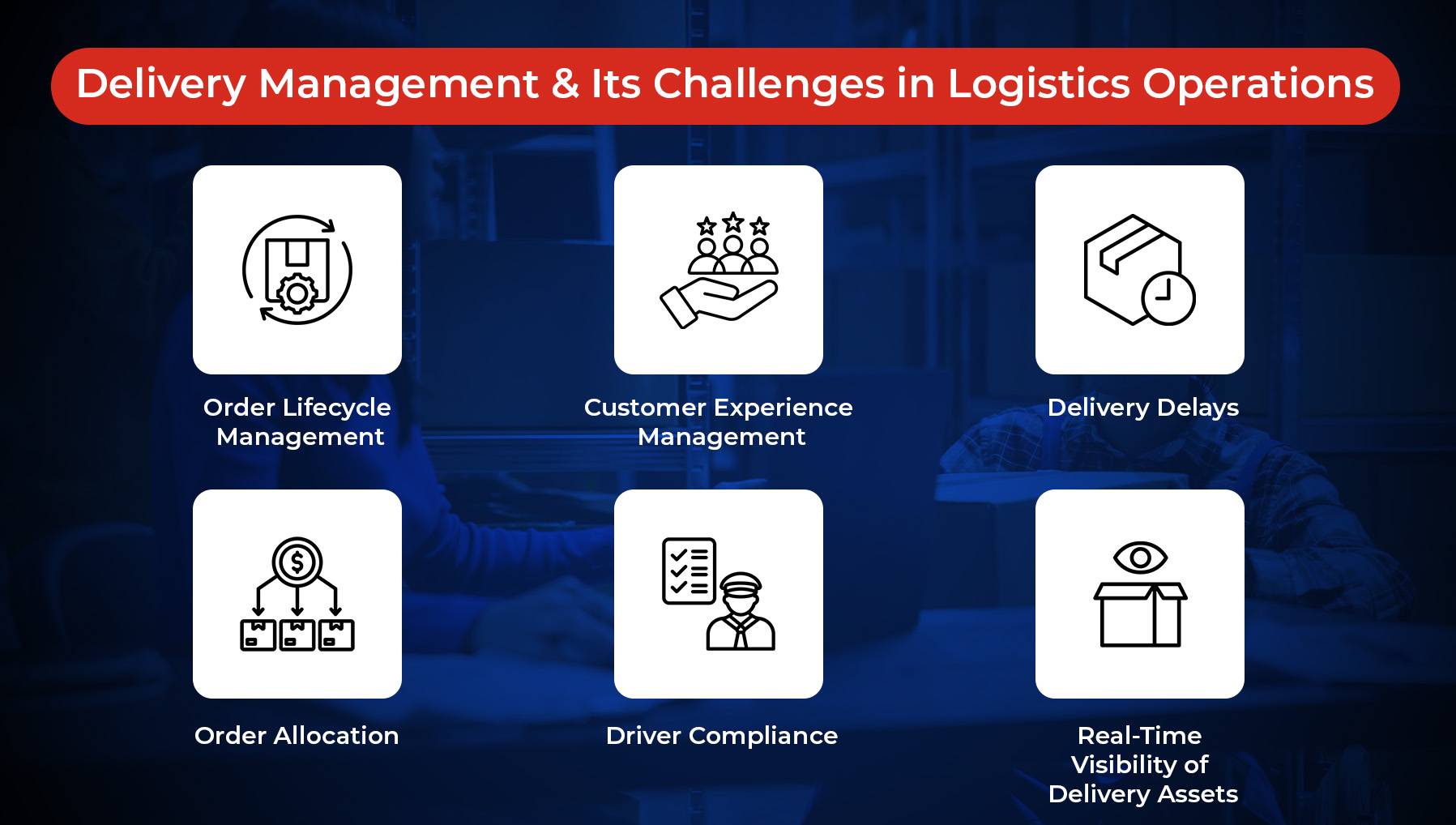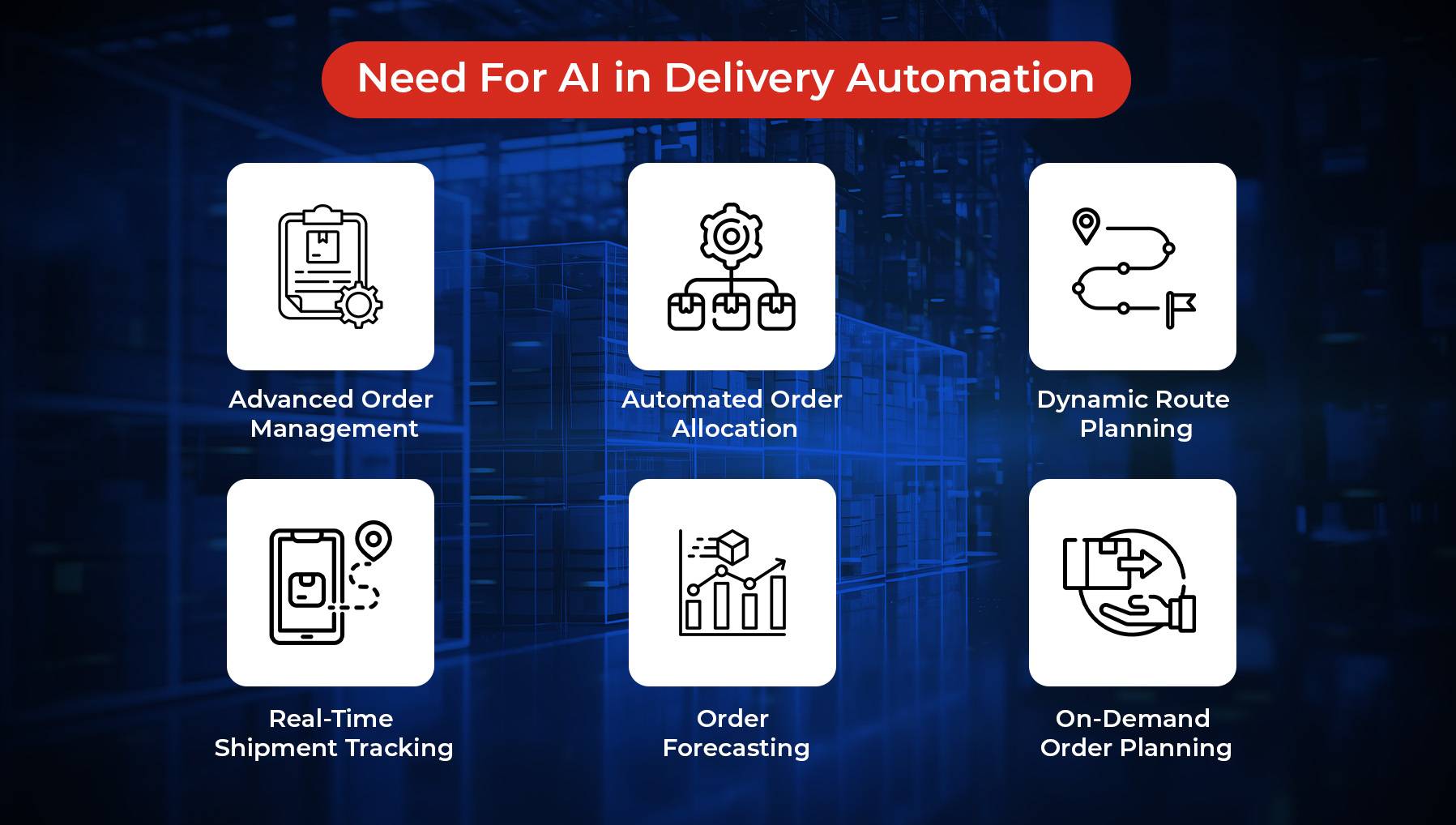
AI in Logistics Automation Transforming Delivery Operations
The logistics industry faces constant pressure to improve efficiency, reduce costs, and meet ever-increasing customer expectations. Traditional methods of managing delivery operations are no longer sufficient to keep up with these demands. Enter Artificial Intelligence (AI), a game-changing technology that’s revolutionizing logistics automation. By leveraging AI, logistics companies can streamline their operations, optimize delivery routes, enhance customer satisfaction, and stay competitive in a rapidly evolving market. This blog explores how AI in logistics automation transforms delivery management, the challenges it addresses, and why integrating AI solutions, like those offered by LogiNext, is essential for the future of logistics.
The Dawn of AI in Logistics
Artificial Intelligence (AI) has rapidly evolved from a futuristic concept to a vital component of modern industries. At its core, AI involves the development of computer systems that can perform tasks typically requiring human intelligence. These tasks include learning, reasoning, problem-solving, and understanding natural language.
AI in logistics sectors enhances efficiency, accuracy, and decision-making capabilities. In logistics, AI is revolutionizing how goods are transported, stored, and delivered, streamlining operations and reducing costs. This blog aims to explore the profound impact of AI on logistics automation, delving into its applications, benefits, and the future it promises.
Quick Read: How is AI and ML enhancing Logistics Route Optimization
What is AI in Logistics?
AI refers to the simulation of human intelligence processes by machines, particularly computer systems. These processes include learning (acquiring information and rules for using the information), reasoning (using rules to reach approximate or definite conclusions), and self-correction.
Artificial Intelligence in logistics is applied to automate and optimize a wide range of processes. From warehouse management and inventory control to route optimization and customer service, AI technologies are enhancing the efficiency and reliability of logistics operations. Key AI technologies used in logistics include:
Machine Learning: Algorithms that improve automatically through experience, used for demand forecasting and predictive maintenance.
Computer Vision: Technology that enables machines to interpret and make decisions based on visual inputs, useful for inventory management and quality control.
Natural Language Processing (NLP): AI that understands and responds to human language, enhancing customer service and support.
Delivery Management & Its Challenges in Logistics Operations
Effective delivery management is crucial for customer satisfaction and operational efficiency. However, it comes with several challenges:

Order Lifecycle Management
Coordinating all stages from order placement to delivery is a complex task that requires seamless integration of various processes. This includes order processing, inventory management, picking, packing, shipping, and last-mile delivery. Artificial Intelligence in logistics automation ensures timely and accurate fulfillment involves synchronizing these stages to prevent bottlenecks and errors. Effective order lifecycle management ensures that each order moves smoothly through the system, minimizing delays and inaccuracies that can lead to customer dissatisfaction.
Customer Experience Management
In today’s competitive market, meeting customer expectations for delivery times and service quality is paramount. Customers expect real-time updates on their orders, timely deliveries, and exceptional service. Managing these expectations involves providing accurate tracking information, proactive communication, and resolving any issues promptly. Failing to meet these expectations can result in negative reviews and loss of customer loyalty. Artificial Intelligence in logistics automation helps with effective customer experience management enhances satisfaction and builds trust, encouraging repeat business.
Delivery Delays
Delivery delays can be caused by various unpredictable factors such as traffic congestion, adverse weather conditions, and operational inefficiencies. These delays disrupt the supply chain and lead to dissatisfied customers. Managing and mitigating these delays requires real-time data analysis, proactive planning, and flexible response strategies. This can be achieved by implementing artificial intelligence in logistics automation software solutions. By anticipating potential disruptions and having contingency plans in place, companies can minimize the impact of delays on their operations and customer satisfaction.
Order Allocation
Efficiently assigning orders to the appropriate delivery personnel or vehicles is crucial for optimizing resources and ensuring timely deliveries. Poor order allocation can lead to underutilized vehicles, increased operational costs, and delayed deliveries. AI in logistics automation can help streamline this process by considering various factors such as delivery location, vehicle capacity, driver availability, and delivery deadlines. This ensures that each order is assigned to the best-suited delivery resource, maximizing efficiency and minimizing costs.
Driver Compliance
Ensuring drivers adhere to schedules, routes, and safety protocols is essential for maintaining delivery standards and reducing risks. Non-compliance can result in delayed deliveries, increased operational costs, and safety incidents. Monitoring driver performance, providing regular training, and implementing strict compliance policies are necessary to address this challenge. Utilizing AI for logistics automation and GPS tracking systems can help monitor driver behavior in real-time, ensuring adherence to planned routes and schedules.
Real-Time Visibility of Delivery Assets
Monitoring the location and status of delivery vehicles and goods in real-time is critical for effective delivery management. Real-time visibility enables companies to track their assets, optimize routes, and provide accurate delivery updates to customers. This transparency not only improves operational efficiency but also enhances customer trust and satisfaction. Technologies such as GPS tracking, IoT sensors, and advanced analytics play a vital role in providing this visibility. Thus using AI for logistics automation allows companies to respond swiftly to any disruptions or changes in the delivery process.
Discover: How is Microsoft Enhancing Retail Operations Using Generative AI
Need for the Hour: AI in Delivery Automation
To address these challenges, integrating AI in logistics for delivery management is essential. AI in logistics automation offers advanced solutions that enhance efficiency and accuracy:

Advanced Order Management
AI in logistics management systems optimizes order processing and fulfillment by automating various stages of the order lifecycle. This includes automating inventory checks, selecting the best shipping methods, and coordinating warehouse operations. According to a report by McKinsey, AI-driven supply chain management can reduce forecasting errors by up to 50% and inventory levels by 20% to 50%. By minimizing human errors and delays, AI ensures that orders are processed quickly and accurately, leading to faster delivery times and higher customer satisfaction.
Automated Order Allocation
Intelligent algorithms can efficiently assign orders to the best-suited delivery resources. It takes into account factors such as delivery location, vehicle capacity, and driver availability. AI in logistics management systems helps maximize the utilization of resources and minimizes delivery times. A study by Capgemini found that AI-driven automation in logistics can improve delivery efficiency by up to 30%. Automated order allocation reduces operational costs and ensures that deliveries are made on time, enhancing overall efficiency.
Dynamic Route Planning
AI in logistics management systems analyzes real-time data like traffic conditions, weather forecasts, and delivery priorities to create optimal delivery routes. This dynamic route planning saves time and fuel, reducing overall transportation costs. According to the American Transportation Research Institute, route optimization can lead to a 10% to 15% reduction in fuel consumption. By constantly adjusting routes based on real-time information, AI helps logistics companies deliver goods faster and more cost-effectively.
Real-Time Shipment Tracking
Providing up-to-date information on the location and status of deliveries improves transparency and customer satisfaction. AI-powered logistics automation tracking systems enable customers to monitor their deliveries in real-time, leading to higher trust and reduced anxiety. A survey by Convey found that 93% of customers want to stay informed throughout the delivery process, and 47% would not order again from a retailer with poor delivery transparency. Real-time shipment tracking also allows companies to quickly address any issues or delays, ensuring a smoother delivery experience.
Order Forecasting
AI in logistics management systems can predict demand patterns by analyzing historical data, market trends, and other relevant factors. Accurate order forecasting ensures adequate resources and inventory are available to meet customer demand. According to Gartner, AI-driven forecasting can reduce stockouts by up to 65% and lost sales by up to 75%. By anticipating future demand, companies can avoid overstocking or understocking, leading to better inventory management and customer satisfaction.
On-Demand Order Planning
AI in logistics automation enables dynamic adjustment of plans to accommodate last-minute orders and changes. This on-demand order planning ensures that businesses respond swiftly to customer needs, enhancing flexibility and reliability. A report by Deloitte highlights that companies using AI for on-demand planning can reduce lead times by 20% to 40%. By quickly adapting to changes, AI helps companies maintain high service levels and meet customer expectations.
Read More: How is Walmart Driving Sustainable Retail Practices Using AI in Retail Operations
Conclusion: Why LogiNext for AI in Logistics Automation?
LogiNext stands at the forefront of AI-driven logistics automation software solutions. We offer a comprehensive solution tailored to meet the industry’s evolving needs. Our advanced AI technology ensures efficient order management, precise route optimization, and real-time tracking, all of which are crucial for modern logistics operations.
By choosing LogiNext, businesses get AI logistics management software solutions that drive operational excellence, reduce costs, and enhance customer satisfaction. Embrace the future of logistics with LogiNext and stay ahead in the competitive landscape of delivery management. Click on the red button below to speak with an expert.
76 2







Pingback: LogiNext-Blog | How AI in Transportation Management Systems Ensures Maximum Efficiency
Pingback: LogiNext-Blog | How AI in Logistics is Transforming the Food and Beverage Industry